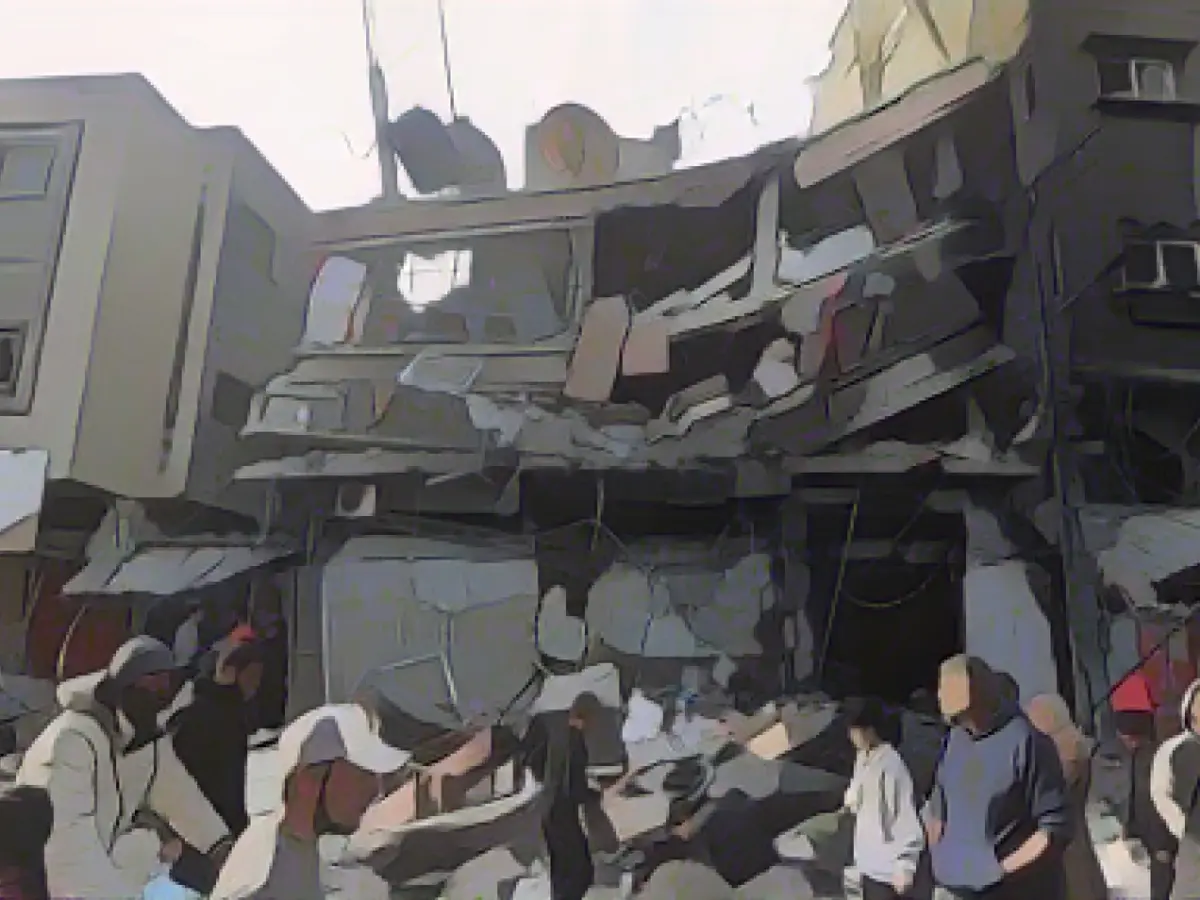Situation in the Middle East - Intensified Israeli Operations in Gaza
The Israeli military continues to escalate its presence in southern Gaza, with reports of intense gunfire and shelling targeting Chan Junis. James Elder, the spokesperson for UNICEF, voiced concern over the unbearable suffering of the civilian population, stating that nobody feels safe when bombs are falling every ten minutes.
Earlier in the day, tanks and armored personnel carriers were seen advancing into southern Gaza, prompting criticism from aid organizations and the international community. The Israeli Defense Forces (IDF) have been accused of using civilians and hospitals as human shields during their operations, allegations that Israel has vehemently denied.
An Israeli army spokesperson, Jonathan Conricus, has refuted claims of a total communication network failure in Gaza, citing live broadcasts on TikTok as proof that networks are still operational. Critics have pointed out, however, that many Palestinians in the region lack the necessary electricity and internet access to view the evacuation map released by the IDF to inform civilians about combat zones.
Since the beginning of the conflict, over 15,900 people have reportedly been killed, according to the Hamas-controlled Ministry of Health. Israel maintains that they possess intelligence information on the whereabouts of the remaining hostages being held in Gaza, although they have kept these details under wraps.
According to Israeli Defense Minister Joav Galant, 15 women and two children are among the 137 hostages still being held in the Gaza Strip. In an attempt to secure their release, Israel has exchanged 105 hostages for 240 Palestinians during ceasefires. Hamas has stated that they will only continue negotiations for additional hostage releases after the conclusion of the ongoing conflict.
Rumors have circulated that Israel is developing a system of large pumps to flood Hamas' network of tunnels with seawater. If the tactic were to be implemented, it could potentially destroy the tunnels and drive the terrorists out of their underground hideouts. However, the impact on the region's water supply remains a contentious issue.
Meanwhile, the Israeli military has engaged in cross-border operations with militant groups, such as Hezbollah, in Lebanon. The Hezbollah positions in Lebanon have been under fire in response to shelling from the border region, which has resulted in casualties on both sides.
In summary, the ongoing conflict between Israel and Hamas is causing widespread suffering in the Gaza Strip, with intense military operations and arguments over the treatment of civilians and hostages. The humanitarian crisis in the region is worsening, with significant damage to infrastructure and a catastrophic impact on the population.







